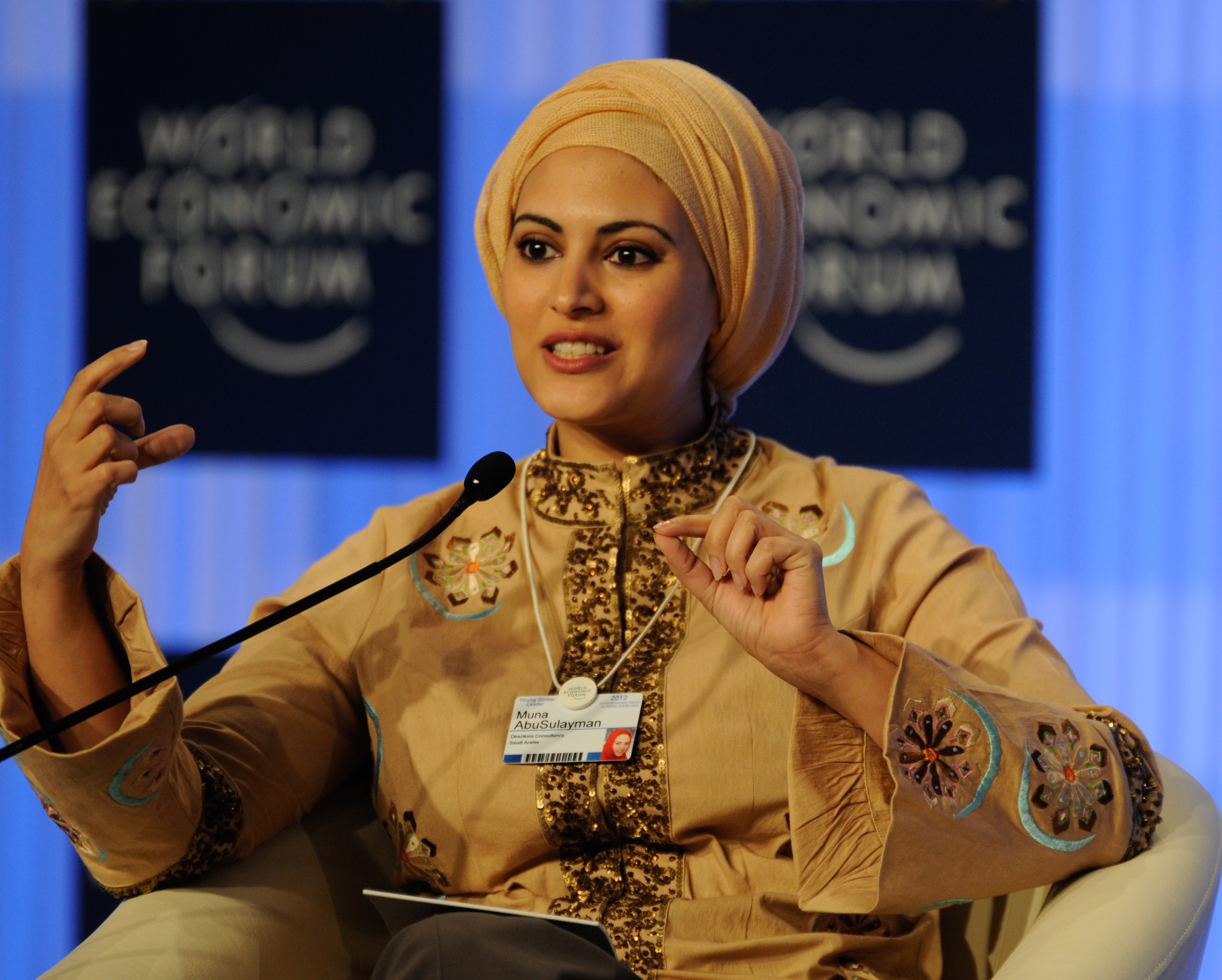As falling oil prices continue to plague the Saudi Arabian economy, efforts to develop a system that fosters innovation and entrepreneurship are being put to the test. As a result, women are taking household roles that are less traditional, starting businesses, and working in industries from which they were banned not long ago. Gender inequality in Saudi Arabia has long been an issue subject to global criticisms, but the reality of Saudi Arabia’s economy is forcing the role of women in the country to shift. Long-standing cultural power dynamics that have created this divide are being challenged, as Saudi Arabian women enter the workforce and obtain greater autonomy. As so many of Saudi Arabia’s cultural restrictions are rooted in long-standing power dynamics, we can’t help but ask ourselves, how are female entrepreneurs shifting this paradigm? Empowering women through entrepreneurship and technology is increasing their financial independence and cultural autonomy, forcing a shift in the hierarchy of the Saudi Arabian household.
Due to legal and cultural restrictions, Saudi Arabia has historically had one of the lowest participation rates of women in the workforce. Despite these barriers, the gender divide within the Saudi Arabian workforce has decreased since 2010, with female participation increasing by 48%.[1] Despite this increase, in 2015, the participation rate was a mere 16 percent, despite Saudi Arabian women making up half of college graduates that year.[2] Some employment restrictions have shifted in the past five years, now allowing women to have careers in fields they had previously been banned from, such as retail and hospitality. In late 2013, the first female lawyers were certified to practice in the country.[3] Despite the legal lifting of such restrictions in the country, some restraints are still enforced, such as the system of guardianship. The formal name of this system is Wakeel, and it requires that male family members sign off on a woman’s decision to open a business or attend University outside the country. Other deeply rooted cultural restrictions have been more difficult to change, such as the limited interactions women may have with men outside of their families or the government’s ban on women driving.[4]
As Saudi Arabia works to diversify its economy, developing an entrepreneurial ecosystem has been central to growth. Entrepreneurship is empowering the women of Saudi Arabia, allowing them to take on new leadership opportunities and create their own positions of decision-making power. Businesswomen like Muna Abu Sulayman, for example, are using their influence to further empower women. As the founding Secretary General of the Alwaleed Bin Talal Foundation, the not-for-profit arm of the HRH Prince Alwaleed Bin Talal‘s Kingdom Holding Company, Muna Abu has invested in women through philanthropic efforts. She has identified the impact that female entrepreneurship has on the country as well, stating, “When you change women’s conditions and empower them, you change the whole family.” Through a partnership with The Al Nahda Society, Muna Abu led the foundation’s efforts to train women to work in the retail sector. Muna Abu also spearheaded a national campaign for breast cancer awareness, which had not previously been spoken about publicly, despite the large number of Saudi Arabian women who are affected by it.[5]
It is female leaders like Muna Abu who are already shifting the gender paradigm in Saudi Arabia. They are forging the path for young Saudi Arabian women who are graduating college today. The job market has yet to adjust to this influx of highly-skilled college graduates, especially women, as many fields have historically been dominated by men. As young Saudi Arabian women graduate with more advanced degrees than their male counterparts, entrepreneurship will allow them to create jobs that meet their standards and qualifications. They will become financially independent, thereby reshaping traditional Saudi Arabian relationships. For children growing up in households with strong male and female leaders, the potential for establishing new societal norms is tangible.
Not only have long-standing legal barriers like the guardianship requirement been significant obstacles to aspiring female entrepreneurs, but cultural and family dynamics have been preventative as well. Before 2001 it was required that all female-owned businesses had their finances managed by a man, a requirement known as mudeer.[6] Many female entrepreneurs are still being forced to appoint a male manager, even when the law explicitly states otherwise. Families have been led almost exclusively by male heads of households, and due to entrepreneurial limitations, women were largely dependent on the men of the home. The Saudi Arabian government has worked to make improvements, such as the slow erosion of the guardianship requirement that began under King Abdullah in 2004. Enforcement of this, and other regulatory changes such as the removal of the mudeer requirement, has been inconsistent at best. Obstacles in business licensing regulations and procedures are one of the five key areas where government-led policy in Saudi Arabia has failed female entrepreneurs, according to the Executive Education and Leadership Development Group.[7]
Despite these barriers, initiatives encouraging female entrepreneurship have begun to push the envelope on these restrictions. In Saudi Arabia, the social enterprise Potential is running a program called Hadafi that works to help Arab women achieve their entrepreneurial ambitions by accelerating their ideas through mentorship and encouragement. Initiatives like Hadafi give women access to networks of people who will encourage them to take risks and start businesses.[8] Having a strong relationship with a mentor who will provide support and advice is beneficial for any entrepreneur, but for female entrepreneurs in Saudi Arabia, it is crucial. According to Areen Shahbari, the founder of Cactus, a female-focused entrepreneurship accelerator in MENA, “Women [entrepreneurs] don’t believe in themselves because others don’t believe in them.”[9] Organizations are working to connect aspiring entrepreneurs with mentors who will support their efforts and empower them to continue growing their businesses. When women can receive support from outside the household, it will reshape their view on what they can possibly achieve.[10]
Female business owners are developing their own relationships that are not dependent on their husbands, largely because they are no longer reliant on the incomes of their male heads of households. Women like Nora Almesned, a Saudi Arabian entrepreneur, are being empowered by the independence they get from their businesses. She states, “My business added so much to me. It made me stronger and more independent.”[11] Despite financial barriers and long-standing biases towards female business managers, female entrepreneurs in Saudi Arabia have used personal savings and family resources for business funding and formation.
Empowering women in the country to start businesses, although incredibly important, is not the sole arbiter of this shifting dynamic. Some of the other gender-biased barriers, such as the female driving ban, are quickly being disrupted through other non-policy means, like the sharing economy.[12] The sharing economy, or collaborative consumption, relies on collective ownership and the sharing, trading, and renting of products as opposed to individual ownership. Consider the role of Uber in a place where women are dependent on male drivers due to institutionalized sexism and a lack of public transit infrastructure. With the introduction of Uber, and Careem, a MENA-based ride-sharing startup, women are able to have greater mobility and autonomy.[13] The growth of technology adoption has helped female entrepreneurs in other ways too, as they have increasingly been able to establish home-based businesses to meet the growing demands of the service sector in the country.[14]
Although Uber is not closing the gender gap any time soon, it is a glimpse into the way that technology and the sharing economy are increasing the power of individuals previously disenfranchised. Initiatives to empower female entrepreneurs are effecting change in ways that we have yet to see. As women in Saudi Arabia develop greater autonomy and begin to shift the economic landscape of the country, the power of individual women will first shift household dynamics, and potentially result in policy change that will give women in Saudi Arabia even greater freedom.
[1] Jonathan Chew, “Women Are Taking Over Saudi Arabia’s Workforce,” Fortune, August 10, 2015, http://fortune.com/2015/08/10/women-saudi-arabia/.
[2] Ibid.
[3] Martha Neil, “Saudi Arabia Licenses Its First Women Lawyers,” ABA Journal, October 23, 2013, http://www.abajournal.com/news/article/saudi_arabia_licenses_its_first_women_lawyers/.
[4] Mark Troemel and Patricia Strait, “Bedouin Rising: How Saudi Female Entrepreneurs are Leading Saudi Arabia into a Knowledge-Based Economy,” Academic Journal of Interdisciplinary Studies 2, no. 9 (October 2013), http://www.mcser.org/journal/index.php/ajis/article/viewFile/857/888.
[5] Anil Bhoyrul, “Foundation For Change,” Arabian Business, November 10, 2010, http://www.arabianbusiness.com/foundation-for-change-358822.html?page=2.
[6] Kelly Lavelle and Hessah Al Sheik, “Giving Voice To Women Entrepreneurs In Saudi Arabia,” IEDP, Women’s Entrepreneurship Initiative, April 2013, http://www.iedp.com/Pages/DocumentManager/women%20entrepreneurs%20in%20Saudi%20Arabia%20Report%20Executive%20Summary.pdf.
[7] Ibid.
[8] Tala El Issa, “From KSA To The Arab World: Hadafi Funds And Mentors Female Entrepreneurs,” Wamda, January 29, 2015, http://www.wamda.com/2015/01/ksa-to-the-arab-world-hadafi-female-entrepreneurs.
[9] Areen Shahbari, “Assessing The Entrepreneurship Ecosystem In The MENA Region,” Lecture, Northeastern University, 2015.
[10] “About Us,” Potential – Business Development, https://www.potential.com/about-us/.
[11] Jasmine Bager, “How Falling Oil Prices Helped Spark A Revolution Of Female “Accidental Entrepreneurs,” Refinery29, March 1, 2016, http://www.refinery29.com/2016/03/104048/saudi-arabia-women-entrepreneurs.
[12] Ahmed Al Majid, “Could A Sharing Economy Transform Saudi Arabia?” Wamda, January 14, 2013, http://www.wamda.com/2013/01/could-a-sharing-economy-transform-saudi-arabia.
[13] Ahmed Omran, “Ride-Sharing App Uber Launches In Saudi Arabia,” Wall Street Journal, May 22, 2014, http://blogs.wsj.com/middleeast/2014/05/22/ride-sharing-app-uber-launches-in-saudi-arabia/.
[14] Mark Troemel and Patricia Strait, “Bedouin Rising: How Saudi Female Entrepreneurs are Leading Saudi Arabia into a Knowledge-Based Economy.”



